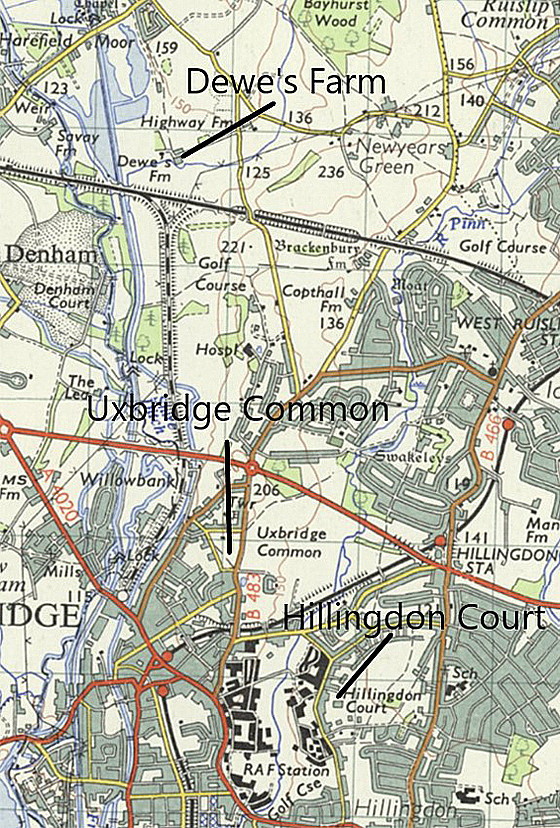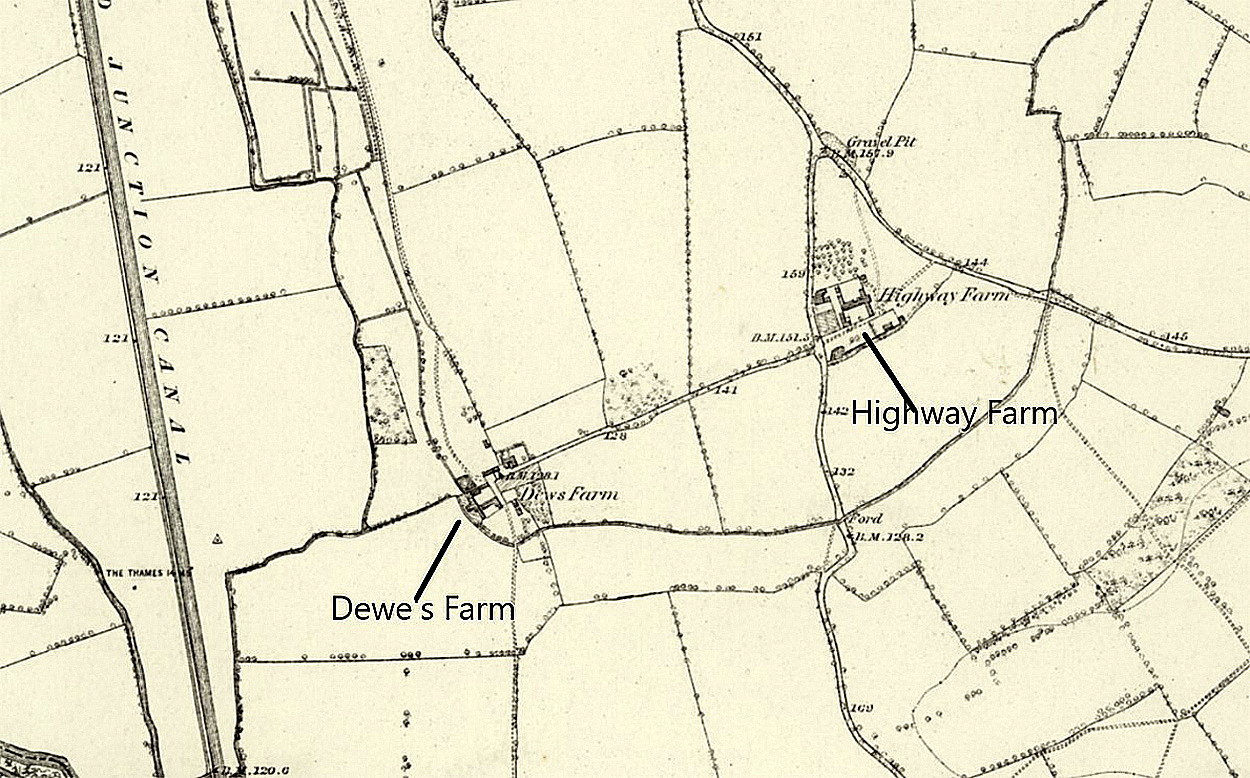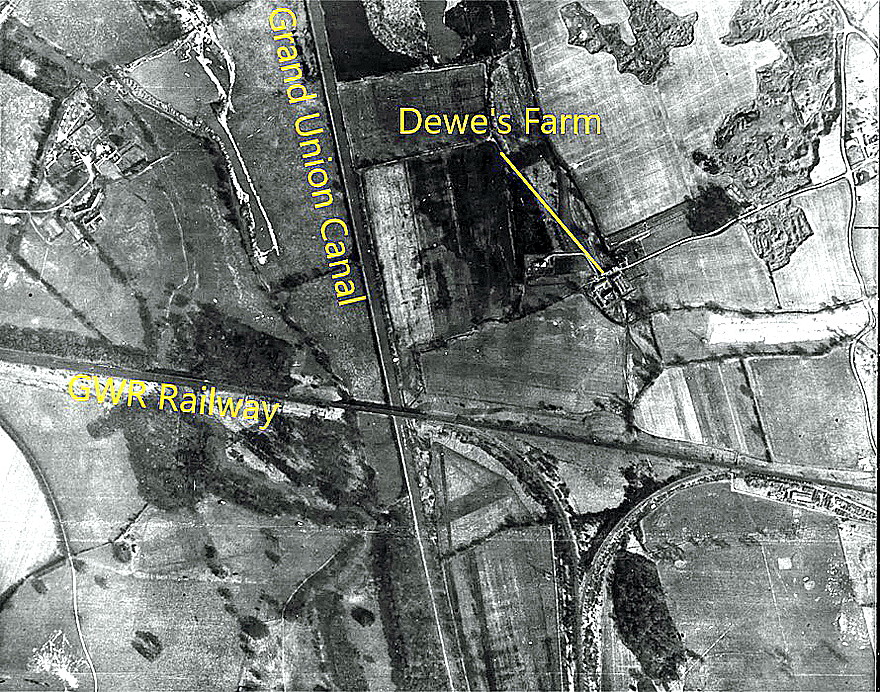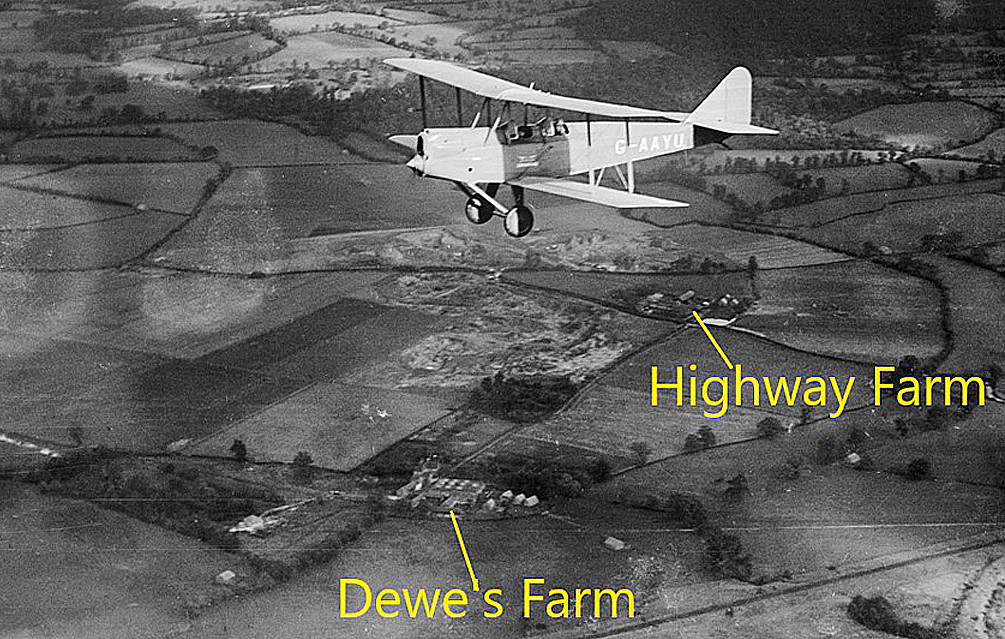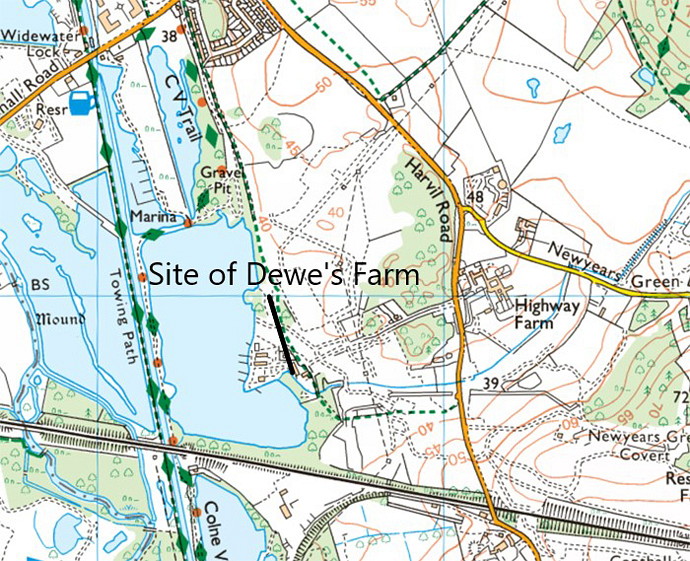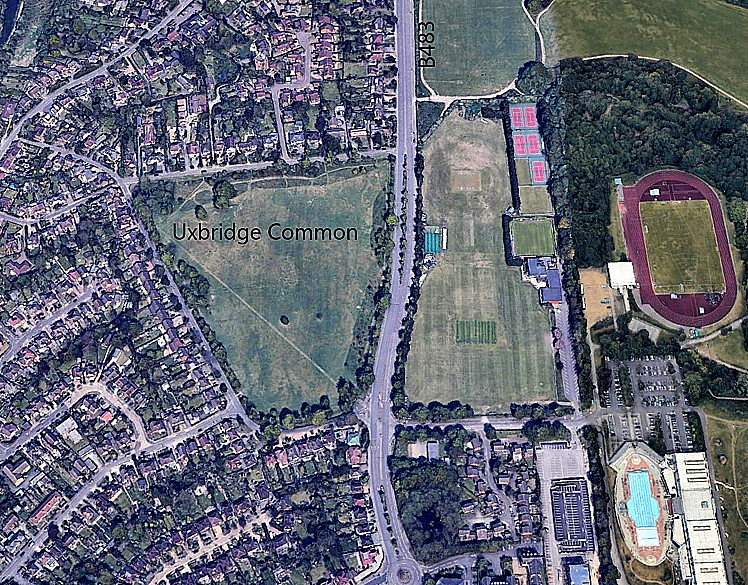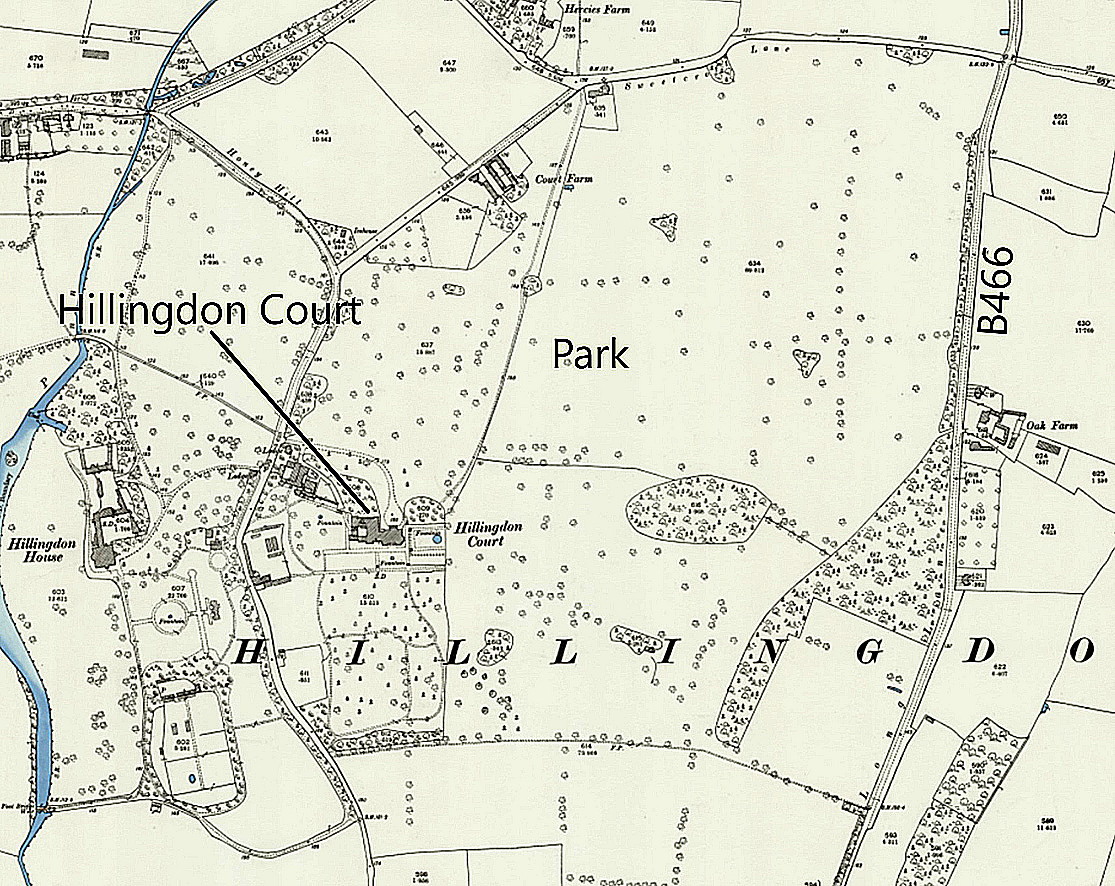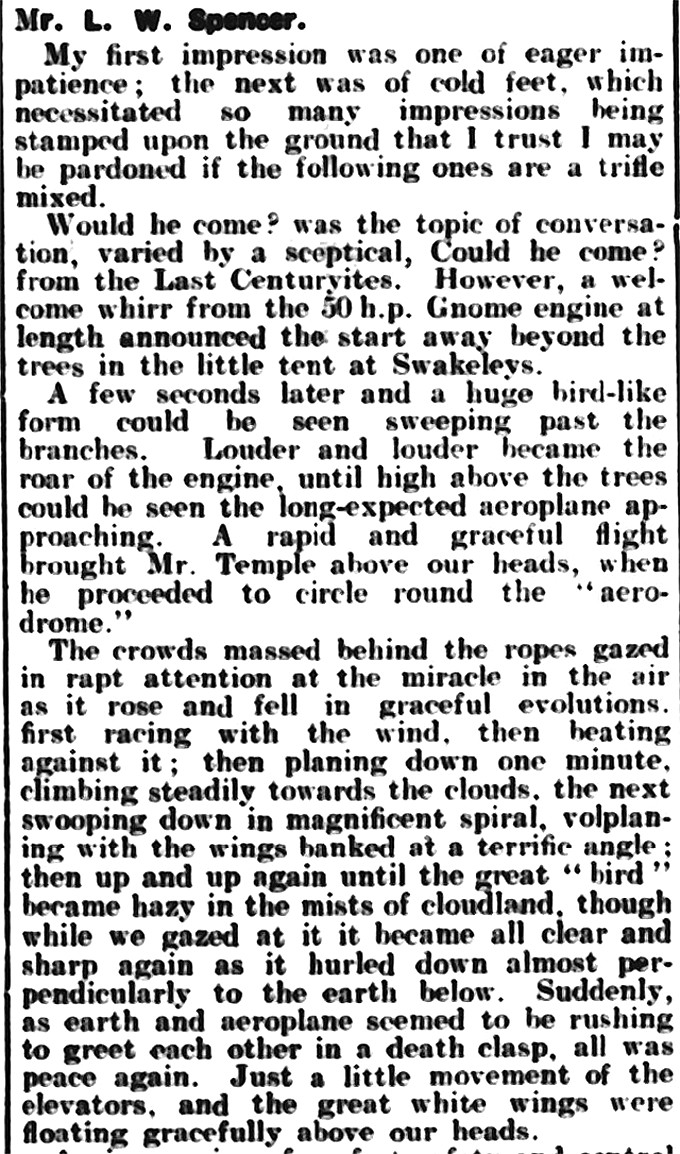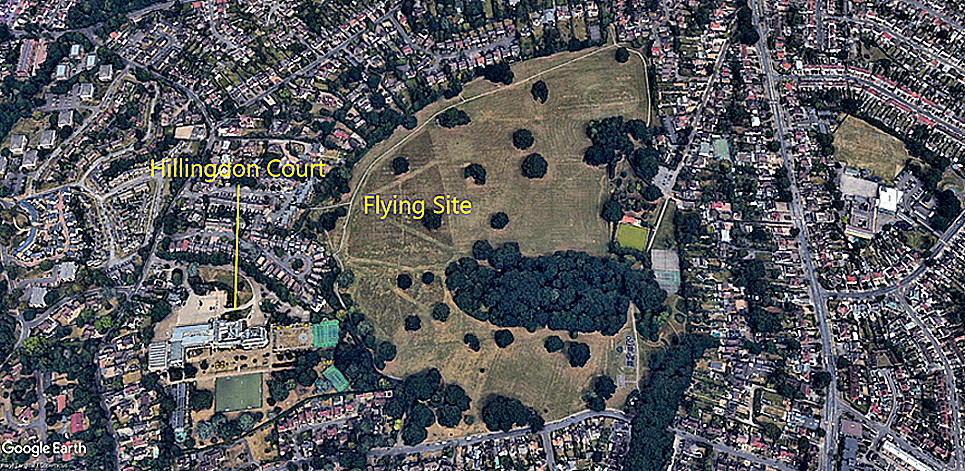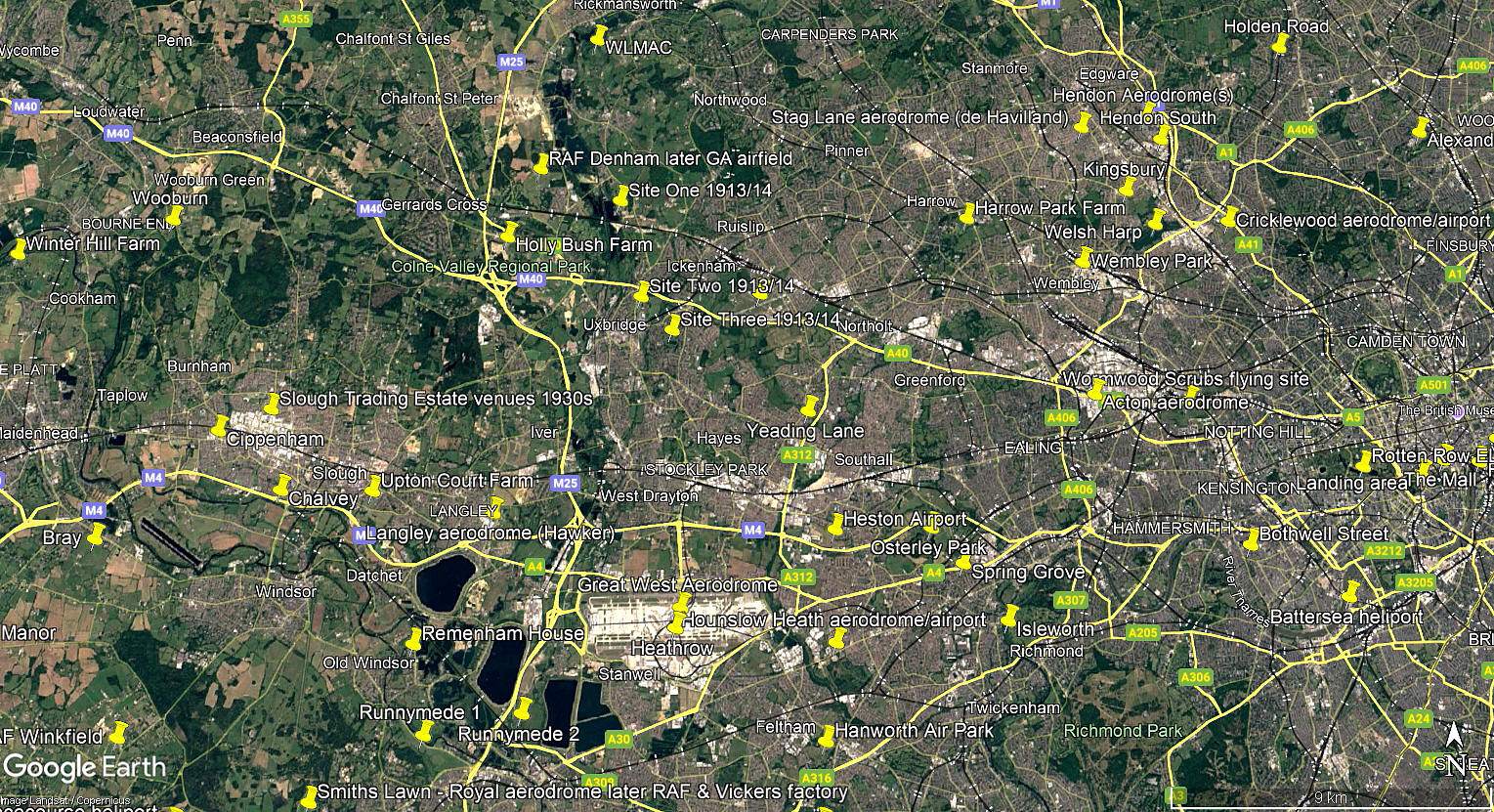Uxbridge area three sites
NOTE: This map only shows the position of Uxbridge town centre
UXBRIDGE AREA: Three temporary Landing Grounds
AN INTRODUCTION: This listing concerns the exploits of the young, (21 years old), George Lee Temple, then based at HENDON. His original intention was to hold an exhibition of flying at HILLINGDON COURT, Uxbridge, on Boxing Day 1913. An event that he had advertised in advance. However, due to bad weather his original plan was scuppered. Not one to give up, he set off on the 27th December.
PLAN B and PLAN C
This time he failed to realise his intentions and landed instead at DEWE'S FARM just north of Uxbridge before returning to HENDON. Undaunted by these setbacks, he again set off on the 2nd January, this time landing on the ATHLETICS GROUND on Uxbridge Common. The next day, on the 3rd January, he eventually succeeded in giving his display at HILLINGDON COURT.
A MICHAEL T HOLDER GALLERY
We have Mike Holder, a great friend of this 'Guide', to thank for both discovering this story and amply illustrating Lee Temple's exploits with maps, photos and press articles. These being laid out in three seperate sections - DEWE'S FARM, ATHLETICS GROUND (Uxbridge Common) and HILLINGDON COURT.
DEWE'S FARM
This article was published in the Hanwell Gazette and Brentford Observer on the 6th December 1913. It certainly brings up a most important point historically, claiming that George Lee Temple was the first 'English' pilot to fly upside down. All the history books etc claim that it was Bentfield Hucks who flew the first loop at HENDON on the 13th November 1913. But he was Welsh!
The Article One was published in the Ealing Gazette and West Middlesex Observer on the 27th December 1913.
Notes: Mike Holder and George Lee Temple certainly share one thing in common. They do not give up easily. For me, Mike finding the aerial photo of the Avro 616 Sports Avian, G-AAYU, with DEWE'S FARM in the background in nigh on a minor miracle. How does he do this? Then again, once being a RAF navigator, ex. Vulcans, Comets and Nimrods, perhaps I should not be in the slightest bit surprised.
MY NOTES: Having, hopefully become something of an aspiring anorak, will happily admit that I cannot recall hearing of the Avro 616 Sports Avian type. (But aged 77 at the time of writing, memory loss is jest one aspect of ageing). It appears that A, V. Roe Ltd built some 405 between 1926 and 1928. This example was first registered on the 29th May 1930, so in effect "brand new" when this photo was taken. It later crashed near Cheltenham on 21.09.36.
These three items certainly illustrate just how dramatically this area has changed in recent decades.
ATHLETICS GROUND (UXBRIDGE COMMON)
It seems likely that in 1913 this was known as St Andrews Athletics Ground
HILLINGDON COURT AND PRESS REPORTS
What has really interested me, and so unlike nearly every other press reports from around the UK in that pre-WW1 era, is that none of them mention the aircraft type that George Lee Temple was flying? Time constraints in producing this 'Guide' prevent me from any in depth delving, and of course, in those days HENDON was awash in aeroplane manufacturers and flying schools.
Article Three was published in the Uxbridge and West Drayton Gazette on the 3rd January 1914.
A MAJOR DISSERTATION OF THE TIME
This extended article was published in the West Middlesex Gazette on the 9th January 1914.
TWO OTHER REPORTS
The Google Earth © view One shows the positions of the ATHLETICS GROUND, (Uxbridge Common), and HILLINGDON COURT. Article Five in two parts was published in the Uxbridge and West Drayton Gazette on the 10th January 1914.
The short article was published in Flight magazine on the 10th January 1914.
The local area and area views are from my Google Earth © derived database.
A MOST TRAGIC ACCIDENT - LEE TEMPLE KILLED
Article Six in three parts was published in the Uxbridge and West Drayton Gazette on the 31st January 1914.
It is of course so easy to be wise after an event. Perhaps, in his case, it may well illustrate the potential risks of being self taught to fly, and not having one of the most elementary lessons drummed in to the extent that it becomes second nature. In those days especially, with such slow frail machines and very light wing loadings, landing downwind; in other words with a tail-wind and the gusty conditions prevailing at the time, was fraught with potential risk. But, even so, as the people at HENDON remarked, it should not normally have resulted in him being killed.
In many ways it took many decades before the principles of becoming risk averse in aviation was to become pretty much an integral feature in flight training, flight management for pilots and crews, especially in civil aviation. However, aviation has had, and always will have, just as in handling any machine, such as vehicles, an integral element of risk which cannot be eliminated. So, it needs to be managed by assessing any potential risk, plus of course bearing in mind another cardinal rule - to expect the unexpected!
We'd love to hear from you, so please scroll down to leave a comment!
Leave a comment ...
Copyright (c) UK Airfield Guide














